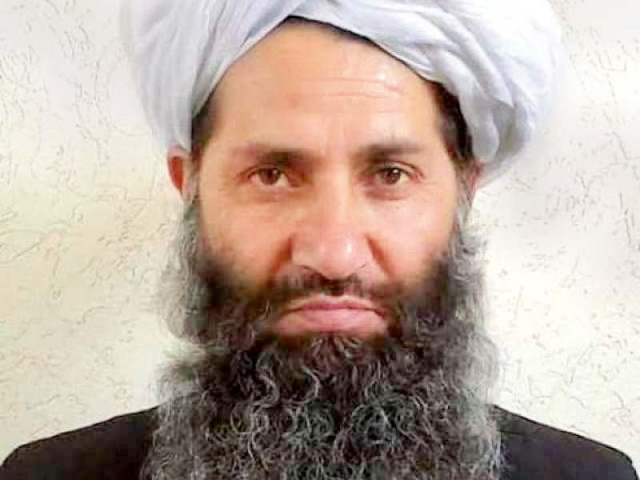As the dust settles
The new leader of the Taliban has made it explicitly clear that peace talks are not on the agenda

Maulvi Haibatullah. PHOTO: FILE

Given that there are a host of issues that fall within the ambit of foreign policy, it is surprising that after three years in power, the government of Nawaz Sharif has yet to appoint a full-time foreign minister, the portfolio being held by the prime minister himself. To a degree, the task is shared between a coterie of trusted advisers, but the Foreign Office is virtually leaderless, and rumours abound of ‘disarray’ therein. Given the current incapacity of the PM and the potential volatility of matters relating to foreign affairs, an early resolution of this unsatisfactory state of affairs is desirable. That said, foreign policy is in part if not whole directed from the establishment’s perspective to an unpublished agenda.
There is little positive to identify, but the newly functional border management system that activated on June 1 is one such. This is an effort to secure the Durand Line, long regarded as porous if not actually irrelevant as a border between Pakistan and Afghanistan. The Torkham crossing is the likely point of entry for many of those of ill-intent to Pakistan, and with 10-15,000 crossing daily with inadequate documentation, an obvious source of insecurity. This is no easy matter, complicated by agreements made during the colonial era regarding freedom of tribal movement as well as being expensive of human and financial resources. Afghanistan is far from a willing partner in this enterprise, worthy as it is, and it remains to be seen whether it will get beyond the ‘launch’ phase.
Notwithstanding the drone strike that killed Mullah Mansoor, violating Pakistan’s sovereignty yet again in the process, little is likely to change in the nature of the bilateral relationship. The protocols of protest will come and go but have little or no effect in real terms, being more to appease public and political sensitivities than make geopolitical readjustments. The unhappy marriage will continue and divorce is not an option. Neither side trusts the other and although there was a warming of relations at least on the surface in the last year, frost prevails below. This is a relationship that is going to remain eternally dysfunctional, a reality accepted by both sides. America will continue to press Pakistan for action against groups such as the Haqqani network, almost certainly to no great effect, and Pakistan will learn to live without new F-16s. Where good may emerge but slowly is in relations between India and Pakistan. Bilateral talks became comatose in the wake of the Pathankot attack much as was intended, but it appears that backchannels remained open and at least at the apex level, the two leaders, Modi and Sharif, are committed to edging forwards if not maintaining an edgy stalemate.
Pakistan needs a dedicated foreign minister and the longer the prime minister prevaricates on this is to our detriment — and to the advantage of those who may not wish us well and exploit an obvious weakness.
Published in The Express Tribune, June 1st, 2016.
Like Opinion & Editorial on Facebook, follow @ETOpEd on Twitter to receive all updates on all our daily pieces.














COMMENTS
Comments are moderated and generally will be posted if they are on-topic and not abusive.
For more information, please see our Comments FAQ